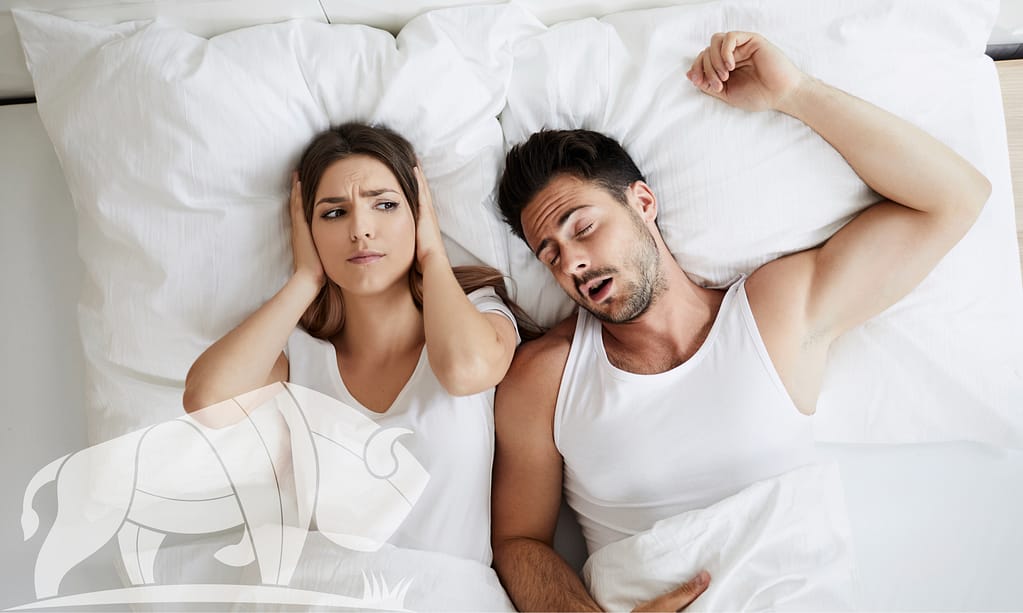Feeling Tired? Here Are 5 Signs You Might Have Sleep Apnea

What is sleep apnea?
Research estimates that around the world, approximately 1 billion adults suffer from sleep apnea. Although the condition is common, many people go years dealing with frustrating symptoms that make sleeping more difficult before finally getting a diagnosis.
How can you know if you have sleep apnea?
Sleep apnea is a condition that causes you to stop breathing briefly while you sleep. This occurs either because there’s a blockage in your airway or because your brain struggles to control your breathing as you sleep. Because your body begins to feel a lack of oxygen, it wakes you up just enough so you can breathe, leading to poor sleep.
Types of Sleep Apnea
There are three main types of this condition: central sleep apnea, obstructive sleep apnea, and complex sleep apnea. The most common type is obstructive sleep apnea.
Central sleep apnea happens because your brain isn’t sending the right signals to breathing-related muscles. Obstructive sleep apnea occurs when the muscles in your neck and head relax, causing the surrounding tissues to press on your windpipe and block air from passing. With complex sleep apnea, you experience both obstructive and central events.
Sleep Apnea Symptoms: What To Watch For
If you suspect you have this condition, knowing what to watch for can give you a better idea of when to turn to a doctor for help so you can get prompt treatment. Here are 5 common symptoms people with sleep apnea experience.
1. Loud and Persistent Snoring
Sleep apnea-related snoring can affect your sleep as well as that of your partner. Why do people snore in the first place? Snoring happens when air flows past relaxed tissues in the throat, leading the tissues to vibrate. This is why loud or excessive snoring often points to obstructive sleep apnea specifically.
If snoring is keeping you from achieving restful sleep, it’s important to turn to experts for help. Snoring remedies include noninvasive ventilation therapy (e.g., CPAP), positional therapy, and oral appliances depending on the official diagnosis.
2. Daytime Fatigue
Because your body continues to wake you throughout the night to breathe, this condition prevents you from getting a good night’s sleep. You may not even realize you are waking up so often during the night. But if you find yourself nodding off throughout the day, it’s likely a sign that you’re not getting the quality sleep you need.
Daytime fatigue is dangerous because it puts you at a higher risk of car accidents and inhibits cognitive function.
3. Gasping or Choking During Sleep
Obstructive sleep apnea causes tissues to press down on your windpipe, giving you the sensation that you’re choking. As soon as your brain recognizes this feeling, it wakes you up and causes you to gasp for air.
4. Morning Headaches and Dry Mouth
If you frequently wake up with a headache, it could be due to this condition. Sleep apnea is associated with oxygen desaturation (low blood oxygen levels), which research suggests may cause the brain’s blood vessels to widen and lead to morning headaches.
Waking with a dry mouth or throat can point to this condition as well. Mouth breathing during sleep is your body’s way of trying to get more oxygen and make up for the apnea episodes. This dries out the oral tissues and decreases saliva flow.
5. Mood Changes and Irritability
Not being able to get restorative sleep can cause imbalances in dopamine, melatonin, and serotonin levels, resulting in mood swings. Sleep apnea also affects a neurotransmitter called GABA. GABA has a calming effect and encourages mood regulation, so suffering from low levels of it puts you at risk of developing mood disorders like anxiety, depression, and more.
Turn to an expert for sleep apnea treatment.
Understanding the signs of sleep apnea and watching for things like snoring, mood changes, morning headaches, dry mouth, and daytime fatigue can help you recognize when it’s time to reach out to a doctor for testing.
Your primary care physician or a sleep specialist will officially diagnose your sleep apnea, but your dentist will be able to help treat this condition. Effective sleep apnea treatments are available, including oral appliances designed to keep your airway open. At Dental Care Associates of Buffalo, we have a welcoming, friendly team you can speak with about the oral issues that impact your daily life. Contact us today to schedule an evaluation with one of our experienced dentists.
